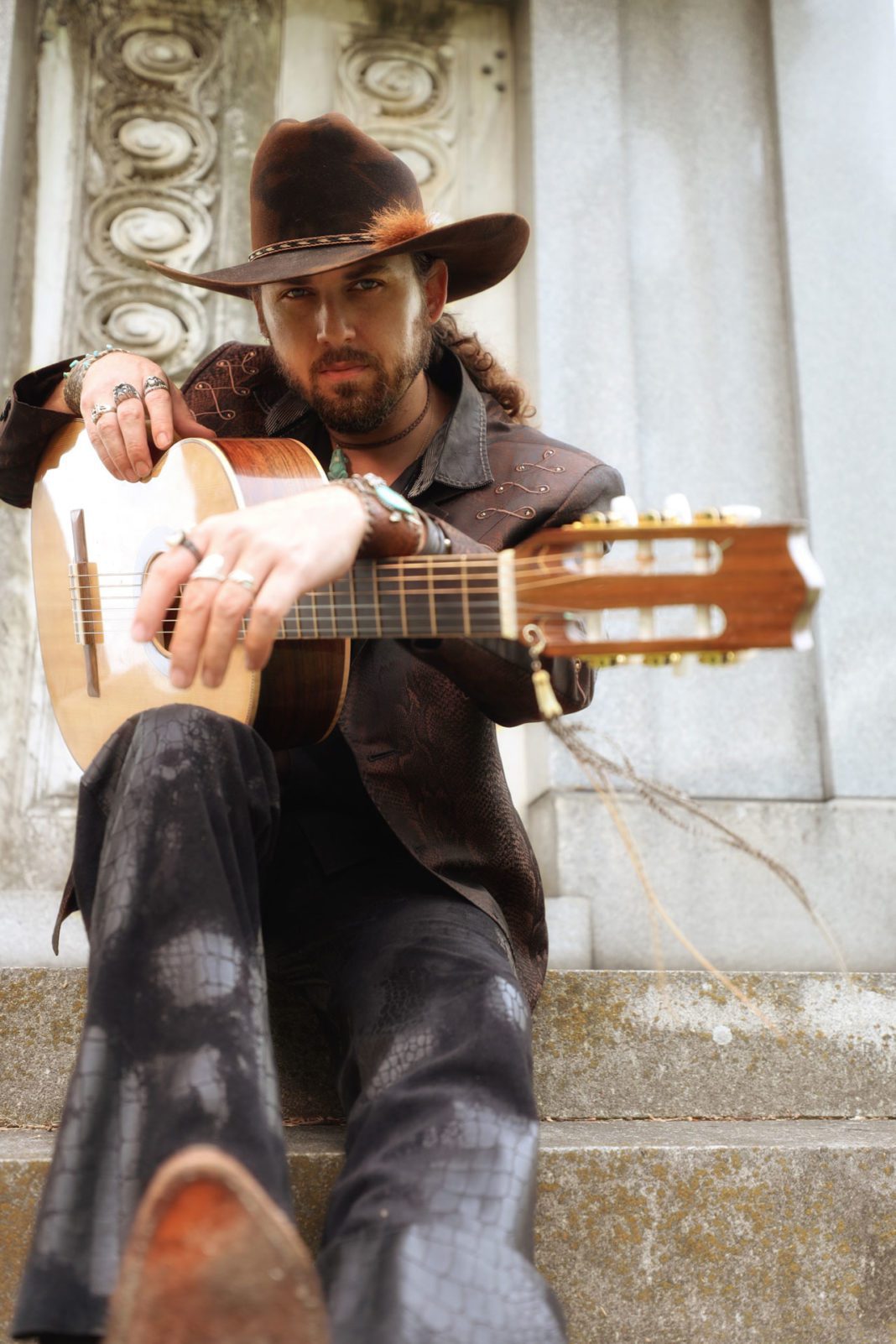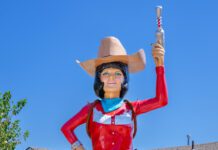In the last generation or so, the recording part of the country-music business changed dramatically. Back in the ’90s, when Oklahoma stars like Garth Brooks, Vince Gill and Ronnie Dunn were busy taking Nashville and the country listening public with the force of an F5 tornado, the important thing was getting a record deal. Being signed to a major label was a career benchmark, proof that you were on your way – or, at least, that your music had a better shot than ever at getting played on the radio and finding a national audience.
Although there are still major labels in Nashville (and elsewhere), they’re now only one option in the recording smorgasbord made possible by the onrush of technology. The good part of this is that anyone with talent can produce his or her own music, release it on vinyl or CD or the internet, and not have to struggle for years in hopes of signing with a label.
The bad part is that because it’s so easy, acts that would’ve been weeded out and passed on by label personnel can get their music out anyway, independently, and there’s so much substandard product available that it threatens to suffocate the legitimately good stuff by sheer force of numbers. Or, to put it another way – these days, anyone can put out a recording, and that isn’t necessarily a good thing.
But then, sometimes an independent, homegrown record can surprise you. And that brings us to CJ Garton, a sixth-generation cattle rancher and country singer-songwriter who grew up on a ranch outside of Bristow. His new double-album set, Tales of the Ole West & Other Libations to Please the Palate, released by his own G-Bar Records, is top-notch all the way, with excellent production values and tough, knowing, often highly personal lyrics, rendered in an authentic honky-tonk baritone that recalls the likes of Dunn and Johnny Paycheck.
It’s the work of someone who knew what he was doing during every step of the record-making process, including the design of the vinyl album, which boasts a holographic cover (by Scott Youtsey, a Claremore-based artist and longtime Garton fan) and some surprise features (which Garton is loath to give away). Even if you didn’t know anything about Garton, one listen to Tales of the Ole West would let you know that he’s no rookie; every song sounds not only authentic, but also carries the weight of hard-earned experience.
So it’s no surprise to find that Garton has done plenty of time in Music City; in fact, he still travels between Nashville and the family ranch.
“I was 22 years old when I got to Nashville, and that’s 16 years ago,” he says. “I loaded up a school bus I’d bought off my grandad, and we took the back half of the seats out and made a little-bitty living quarters. I just came out here [to Nashville] cold turkey.
“I had this vision in my brain of what Nashville was by listening to the legends that were probably around when my dad was a kid,” he adds. “So my version of what Nashville was, was different. Honestly, I had to get through that.”
And that meant finding people who thought and felt the same way about country music that he did – which often wasn’t easy.
“To me, songs spoke to my heart,” he explains. “They’re what saved my life as a kid, growing up. They’re what helped mold me into understanding others. I wanted to be the person to move here and make that kind of music and carry on that kind of tradition.
“I had some success. I’ve had songs cut by Tanya Tucker, David Allan Coe. I’ve been able to work with legends, and when you’re sitting next to someone you grew up listening to on the radio, and they’re singing your song and discussing it – that’s a very unreal feeling, but a very proud one.”
As a recording artist, he adds, “I signed some deals. I lost some deals. Had a lot of things occur. I learned a lot. For everything that Nashville is, it’s matured me into the artist I am today. It’s kept me on my toes.”
A couple of years ago, with some eight albums behind him, he “broke off” with his Nashville label and returned to the ranch outside Bristow.
“Going back home for me was always a reset,” says Garton. “I knew I had to be back home, to take care of the ranch, take care of the family, the cattle, Grandpa. And when I did, it all helped me know where the music really came from, where the heart of it really was.”
That feeling was reinforced by what can only be called an unusual trip from Tennessee to Oklahoma.
“I’d trained two horses, Pancho and Lefty, and I asked my son, who was 13 at the time, if he’d go with me if I decided to ride from Nashville to Oklahoma on horseback. I’d broken off my label, and I said, ‘I need to do this, and I kinda want you to do this with me.’
“And he said, ‘Yeah, I’ll do it with you.’
“I think he thought I was joking at the time. But we rode almost 700 miles on horseback in 30 days, and it was life-changing.” He chuckles. “We just rode across the country, and people kept finding us. Radio stations would come out and talk to us, newspapers would get wind of us and they’d meet us when we were sitting in our hammocks, having lunch, letting the horses eat. People would come out and take pictures and bring apples and bananas for the horses.
“The first week in, my son looked at me. He had tears in his eyes, and he said, ‘I didn’t know what to expect from this. It’s pretty crazy what’s happening. But, from the way people have been with us, I have restored faith in humanity.’
“To have your 13-year-old kid tell you that was worth the entire trip,” he notes.
There were other positives Garton gleaned from the experience.
“It was what I needed,” he says. “It also gave me the opportunity to ask real people about the music. I needed to know if I was dragging myself and my family through something that’s not going to see fruition. Was I chasing something that, like people are saying, is dead?”
He found out, however, that the traditional country-music style he loved “was very much alive. People just aren’t getting it – and they’re missing it. So when we got back, we put the horses out to pasture, and I went to work. And that’s all I’ve done since then. It’s been so organic and natural.”
It’s also been a success. The first thousand copies of Tales of the Ole West & Other Libations to Please the Palate – co-produced by the noted Nashville session fiddler and Time Jumpers member Joe Spivey, whom Garton calls “one of the most talented and kindest people I’ve ever met” – sold out via preorders in three weeks, so G-Bar Records is planning a release of another thousand, featuring an alternate holographic cover, in January.
“Things just seem to keep falling into place,” he says. “And that’s proof that we’re on the right path now, that the timing is right and everything is right. That’s something you have to wait for. You have your time, and you have God’s time, and right now I think we’re on the same page.”


























